Will budget cuts warning help break Stormont deadlock?
- Published
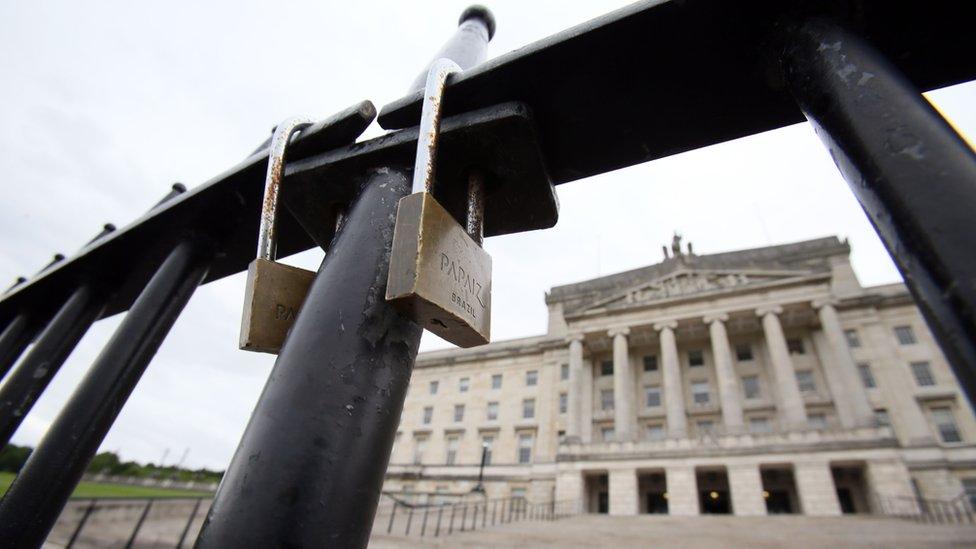
Stormont has been without government for almost a year, but the bills still must be paid
So what impact, if any, will the Stormont civil service's latest budget briefing have on the chances of restoring devolution?
Secretary of State James Brokenshire is expected to convene a fresh round of talks with the local parties in January.
Ahead of those potential discussions, Sinn Féin's Michelle O'Neill spoke of her belief that the year-long deadlock can be resolved.
However, she gave no indication of any movement on her party's "red lines" regarding an Irish language act, same-sex marriage or the legacy of the Troubles.
The Democratic Unionist Party (DUP) insists it would return to Stormont immediately and work on those issues in parallel, but the tone from DUP representatives has not inspired confidence that a workable compromise with republicans is in the offing.
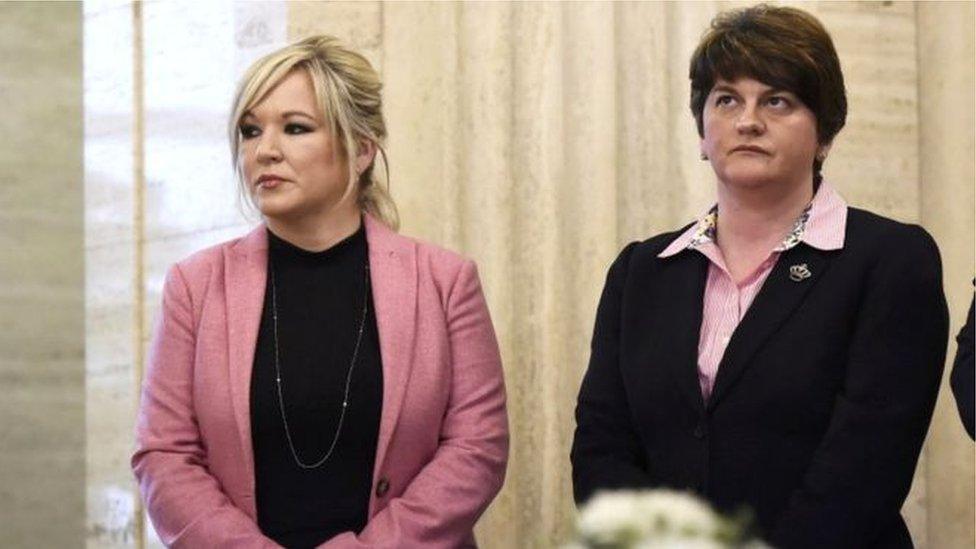
There appears to be little chance of a Christmas truce in the stand-off at Stormont
Indeed, the recent tensions between the DUP and Irish ministers over Brexit may lend an extra layer of complexity to talks in which both the British and Irish governments traditionally lobby for a successful outcome.
Under pressure?
Into this mix, add the civil servants' warning of the need to balance the books, by various combinations from cutting some departments by up to 12%, to raising the regional rate by 10%.
The Northern Ireland Public Service Alliance (Nipsa) union leader Alison Millar told BBC Radio Ulster she regards the budget document as a "cynical approach".
"By publishing this in the mouth of Christmas", she asked "is this an attempt by civil servants to put pressure on the politicians to get back into government?"
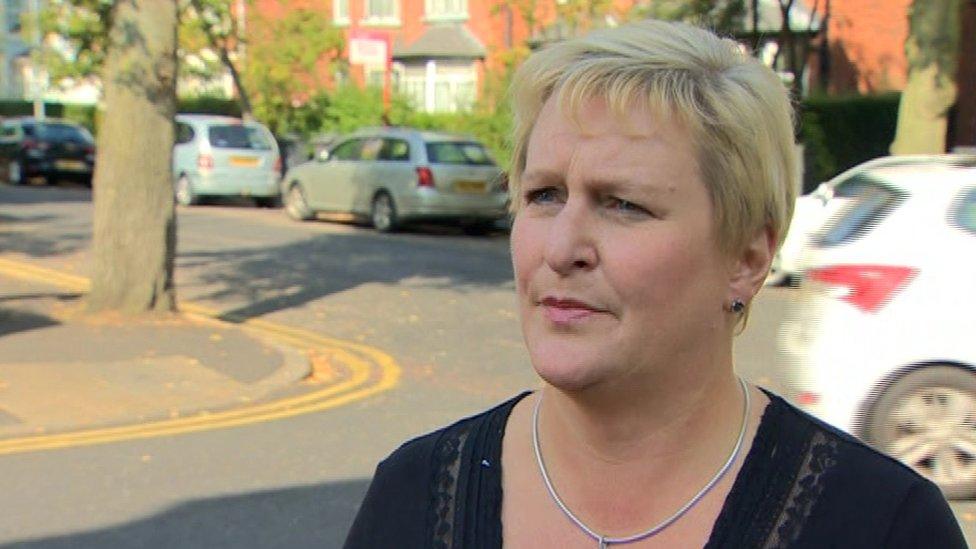
Alison Millar asked if budget warnings were being used to pressurise politicians
It is a legitimate question, but I do not quite see the logic.
If the Stormont document had argued local politicians faced a need to make cuts unless they returned to the executive, I could see how the warning might be viewed as an incentive to break the deadlock.
However, the document reads more like a statement of the financial situation irrespective of whether we have devolution, direct rule or the current halfway house.
'Poisoned chalice'
If that is the case, the civil service scenarios could actually deter the local parties from doing a deal in January on the grounds that any incoming administration faces a series of unpalatable options.
Given our politicians' previous reluctance to introduce water charges, or increase rates and tuition fees, it seems unlikely they will be keen to grasp such a poisoned chalice.
That does not mean that any talks in January will not see some parties demanding extra resources to alleviate - to borrow Sinn Féin's language - this "Tory austerity agenda".
But given the DUP's previously announced £1bn confidence and supply deal, with the Conservative government, the Treasury will not be easy to persuade on that front.
Indeed, the civil service budget briefing factors in the DUP cash, which will alleviate some problems within this financial year.
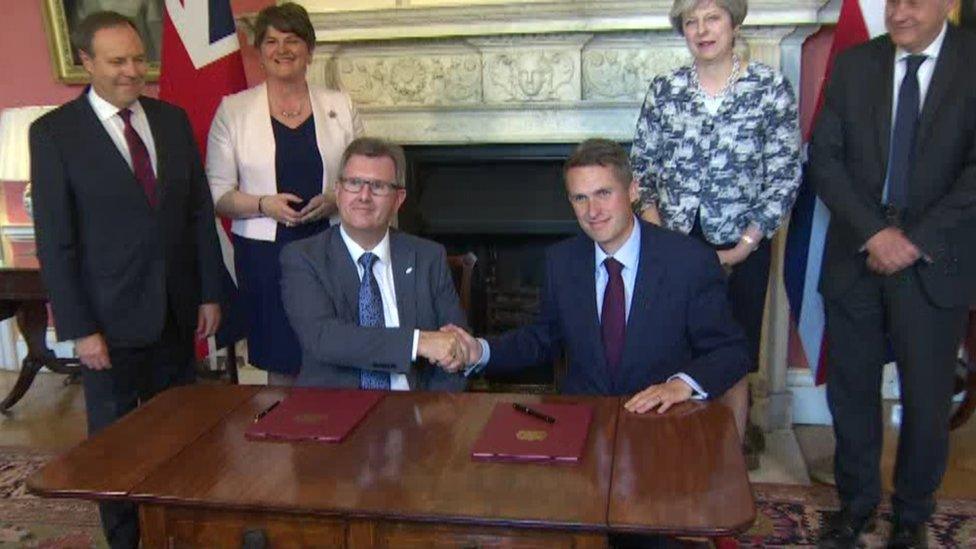
The DUP negotiated an extra £1bn in public spending in return for supporting the Tories
However, the DUP money is heavily skewed towards one-off capital projects as opposed to the recurring pressures on budgets which are impacting on our schools, hospitals, roads maintenance and so on.
'Intolerable position'
Senior officials have come under pressure over which decisions they have chosen to take or not to take during our year without a government.
Civil servants believe they have been put in an increasingly intolerable position, having to apply theoretical "public interest" tests to dilemmas which would normally be for elected representatives to tackle.
If any new talks do not lead to a devolution deal by the end of January, then the pressure will again be on the secretary of state to intervene to provide a semblance of good governance.
The need to approve a budget for the next financial year (2018/19) will be pressing, but with no blueprint to simply carry over from the old Stormont Executive, whoever passes such a budget - whether they are at Stormont or Westminster - may ultimately end up leaning heavily on the latest briefing paper.
- Published19 December 2017

- Published17 December 2017
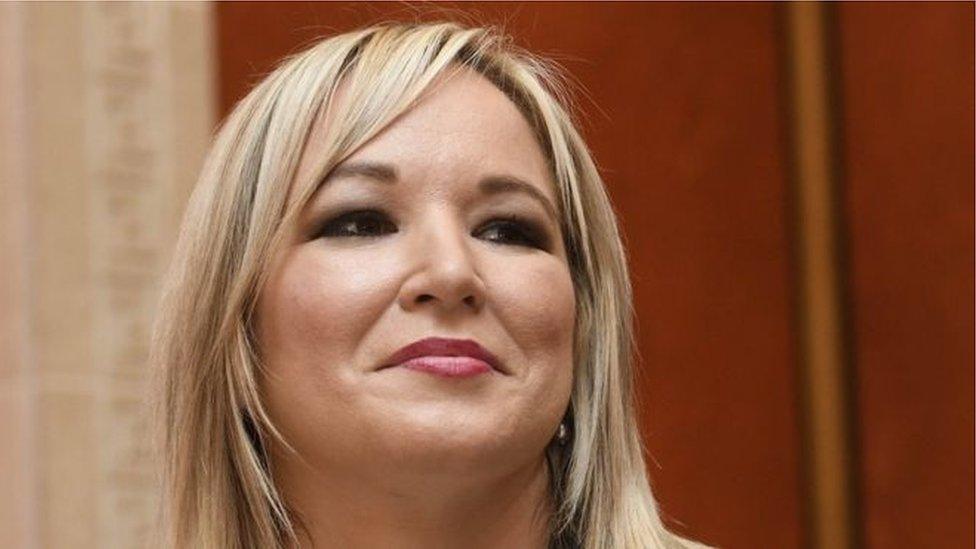
- Published13 November 2017
